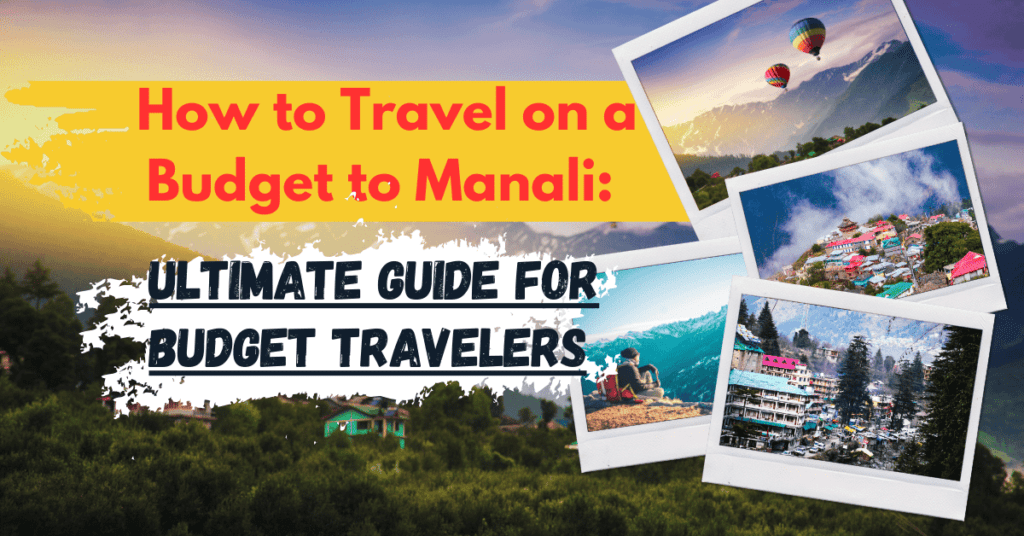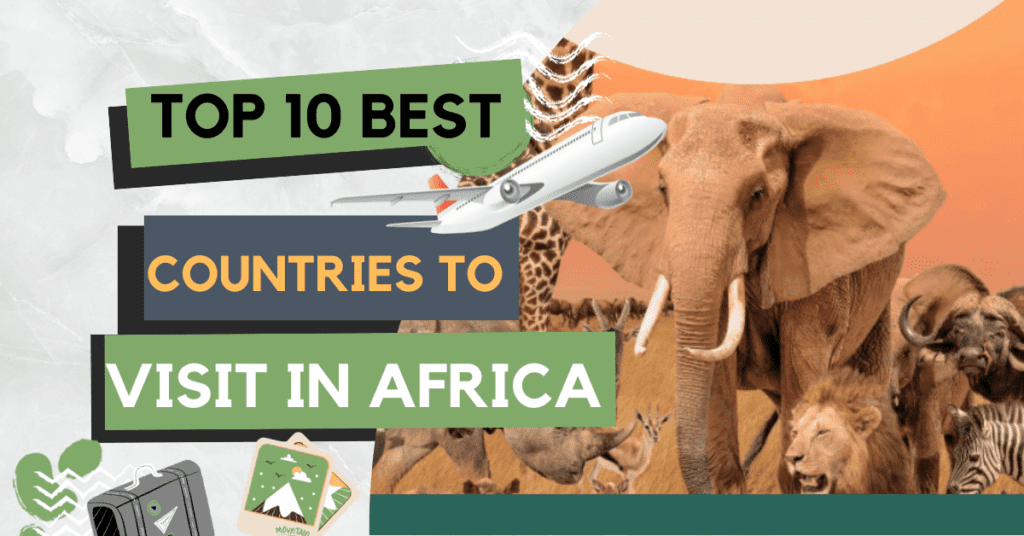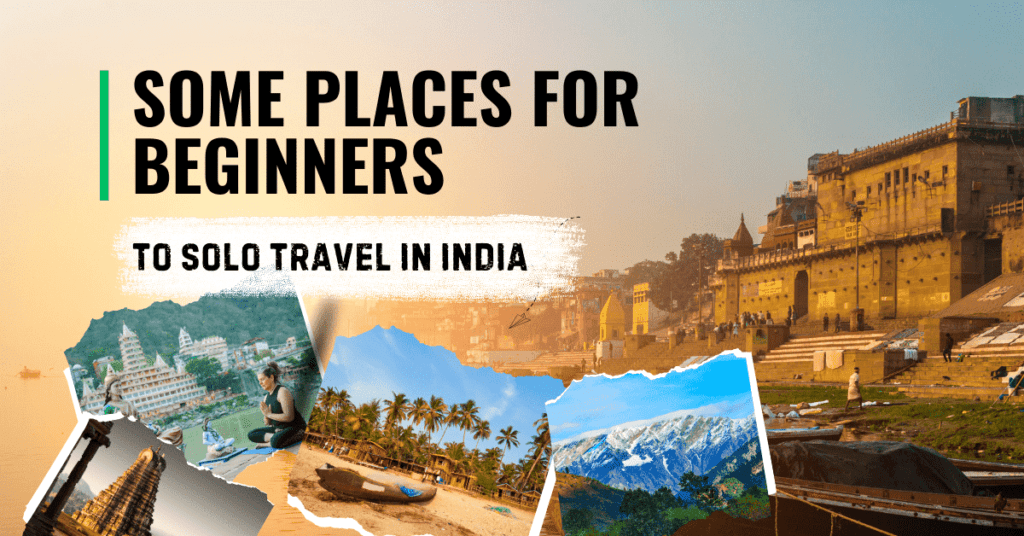
Travel the world in 2024 is a dream of many people, it is a desire that everyone has but at the same time it seems quite impossible. But with proper preparation, proper materials and a good spirit this dream can be turned into reality. Some people travel frequently while some are planning their first international trip, regardless of this, this article will provide useful tips to help make your trip fun.
Planning Your Global Adventure

Research and Preparation for How to Travel the World in 2024
While planning for such a trip there are basically aspects that you are expected to consider and prepare for. Here are some things to consider:
- Destinations: Make a list of countries you want to visit. Think about the weather, political stability, visa requirements, and interesting places to see.
- Weather: Check the best time to visit each country. Avoid extreme weather like heavy rains or very cold winters.
- Political Stability: Make sure the country is safe for travelers. Avoid places with ongoing conflicts.
- Visa Requirements: Some countries need visas. Find out how to get one and any costs involved.
- Cultural Attractions: List the must-see places, festivals, and unique experiences in each country.
how travel agents work can help you save money; learn more in my article on Can Travel Agents Get Cheaper Flights?.”
Setting a Budget

Creating a realistic budget is very important for long trips. Calculate your expected costs for flights, accommodation, food, transportation, and activities.
- Flights: Use websites to compare prices and set alerts for deals.
- Accommodation: Mix up your stays between hostels, budget hotels, and Airbnb. Booking in advance can save money.
- Food: Plan to eat at local markets and cheap restaurants. Occasionally, treat yourself to a nice meal.
- Transportation: Research public transport options like buses and trains, which are usually cheaper than taxis.
- Activities: Budget for must-do activities, but look for discounts or free events.
Tracking your expenses will help you stay within your budget and adjust as needed.
Obtaining Necessary Documentation

Make sure you have all the needed documents before you leave, including passports, visas, and any required vaccinations.
- Passports: Ensure your passport is valid for at least six months beyond your planned return date.
- Visas: Check the entry requirements for each country and apply for visas early.
- Vaccinations: Talk to a travel clinic or your doctor about required and recommended vaccinations.
It’s also smart to carry copies of important documents like your passport, travel insurance, and emergency contact information.
Packing for a travel the world
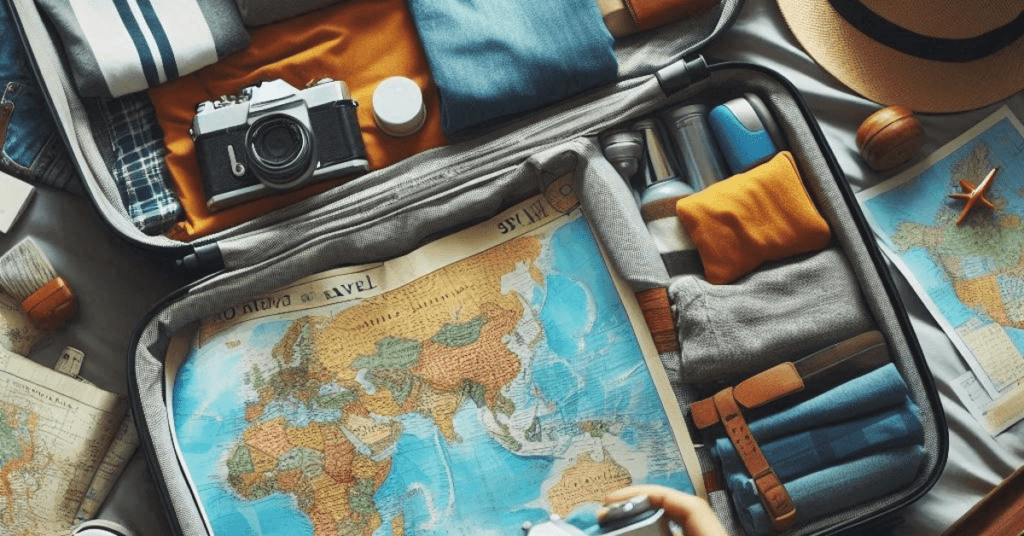
Essential Items to Pack
Packing efficiently is key to a successful trip. Bring versatile clothing that can be layered for different climates. Essential items include:
- Comfortable Walking Shoes: Good for long walks and different terrains.
- Weather-Appropriate Clothing: Layering is key. Pack light but adaptable outfits.
- Travel-Sized Toiletries: Save space with small containers.
- First Aid Kit: Include basics like band-aids, pain relievers, antiseptic wipes, and any personal medications.
- Portable Charger: Keep your devices charged, especially during long days out.
- Travel Adapters: Different countries have different plug types. A universal adapter is useful.
- Reusable Water Bottle: Stay hydrated and reduce plastic waste by refilling your bottle.
Travel Gear and Gadgets
Investing in good travel gear can make your trip more comfortable and secure. Consider bringing:
- Sturdy Backpack: Choose one with good support and security features.
- Packing Cubes: Keep your items organized and easy to find.
- Travel Towel: Lightweight and quick-drying, essential for hostels and outdoor activities.
For tech-savvy travelers, gadgets like noise-canceling headphones, a portable Wi-Fi hotspot, and a universal power bank are invaluable.
Navigating Different Cultures

Cultural Sensitivity and Respect
Respecting local customs and traditions is essential when traveling. Research the cultural norms and etiquette of each country you visit.
- Local Customs: Learn about traditional greetings, dress codes, and social behaviors.
- Basic Phrases: Learn simple phrases like “hello,” “thank you,” and “please” in the local language.
- Modest Dressing: Dress appropriately, especially in religious or conservative areas.
Food and Dining Etiquette
Experiencing local cuisine is a highlight of world travel. Be open to trying new foods, but also be aware of dining etiquette.
- Local Foods: Try traditional dishes and street food for an authentic experience.
- Dining Etiquette: Understand local customs, such as how to eat, tipping norms, and table manners.
For example, in Japan, it is customary to remove your shoes before entering a restaurant, while in India, eating with your right hand is the norm.
Staying Safe While Travel the world
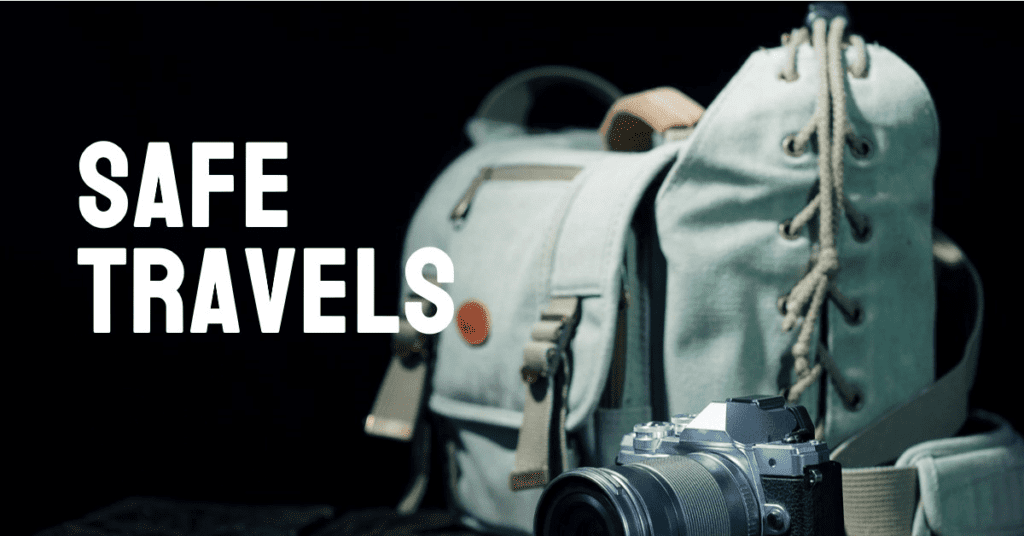
Health and Safety Precautions
Your health and safety should always be a top priority. Before you travel, check the health advisories for each destination and take necessary precautions.
- Health Advisories: Stay updated on any travel health warnings or outbreaks.
- Vaccinations: Ensure you have all required vaccinations.
- First Aid Kit: Pack essentials for minor injuries and illnesses.
Avoid common scams while travel the world

Tourist scams can happen anywhere. Be vigilant and aware of common scams such as overcharging, pickpocketing, and fake tour guides.
- Overcharging: Always confirm prices before agreeing to services or purchases.
- Pickpocketing: Keep your valuables secure and be aware of your surroundings.
- Fake Tour Guides: Use reputable companies or official guides for tours.
Maximizing Your Travel Experience
Engaging with Locals
One of the most enriching aspects of travel is meeting people from different cultures. Engage with locals through language exchange programs, homestays, and community-based tourism.
- Language Exchange Programs: Join language exchange meetups or online communities.
- Homestays: Stay with local families to gain deeper cultural insights.
- Community-Based Tourism: Participate in tours or activities led by local residents.
Sustainable and Responsible Travel
As travelers, it is our responsibility to minimize our impact on the environment and respect the communities we visit. Practice sustainable travel by reducing waste, supporting local businesses, and participating in eco-friendly activities.
- Reduce Waste: Carry reusable items like water bottles, bags, and utensils.
- Support Local Businesses: Shop at local markets and eat at locally-owned restaurants.
- Eco-Friendly Activities: Choose activities that promote conservation and sustainability.
Embracing the Digital Nomad Lifestyle

Balancing Work and Travel
With the rise of remote work, many travelers are adopting the digital nomad lifestyle. To successfully balance work and travel, establish a routine that accommodates your work hours and allows time for exploration.
- Routine: Set a daily schedule that includes both work and leisure time.
- Workspace: Find a quiet and comfortable place to work.
- Reliable Equipment: Invest in a good laptop, portable Wi-Fi device, and noise-canceling headphones.
Essential Tools for Digital Nomads
Use tools such as project management software, cloud storage, and communication apps to stay connected with your team.
- Project Management Software: Tools like Trello or Asana help manage tasks and projects.
- Cloud Storage: Services like Google Drive or Dropbox for easy access to your documents.
- Communication Apps: Stay in touch with apps like Slack, Zoom, or WhatsApp.
Solo Travel: Empowering and Safe Adventures

Safety Tips for Solo Travelers
Traveling alone can be an incredibly empowering experience. Prioritize your safety by staying in well-reviewed accommodations, avoiding poorly lit areas at night, and keeping friends or family informed of your itinerary.
- Accommodations: Choose places with good reviews and safety ratings.
- Night Safety: Avoid walking alone at night in unfamiliar areas.
- Stay Connected: Regularly update friends or family about your whereabouts.
Meeting People on the Road
Solo travel doesn’t have to be lonely. Join group tours, stay in hostels with common areas, or attend local events to meet fellow travelers.
- Group Tours: Join tours to explore new places and meet people.
- Hostels: Stay in hostels with common areas where you can socialize.
- Local Events: Attend local festivals, meetups, or social gatherings.
If you would like to know more information about traveling alone click here
The Importance of Travel Insurance

Choosing the Right Travel Insurance
Travel insurance is a must-have for any trip. It protects you against unexpected events such as medical emergencies, trip cancellations, and lost luggage.
- Coverage Limits: Check the maximum payout for different types of claims.
- Exclusions: Understand what is not covered by the policy.
- Provider Reputation: Choose a reputable insurance company.
When selecting a travel insurance plan, consider factors such as coverage limits, exclusions, and the reputation of the insurance provider.
Traveling with Family: Creating Cherished Memories
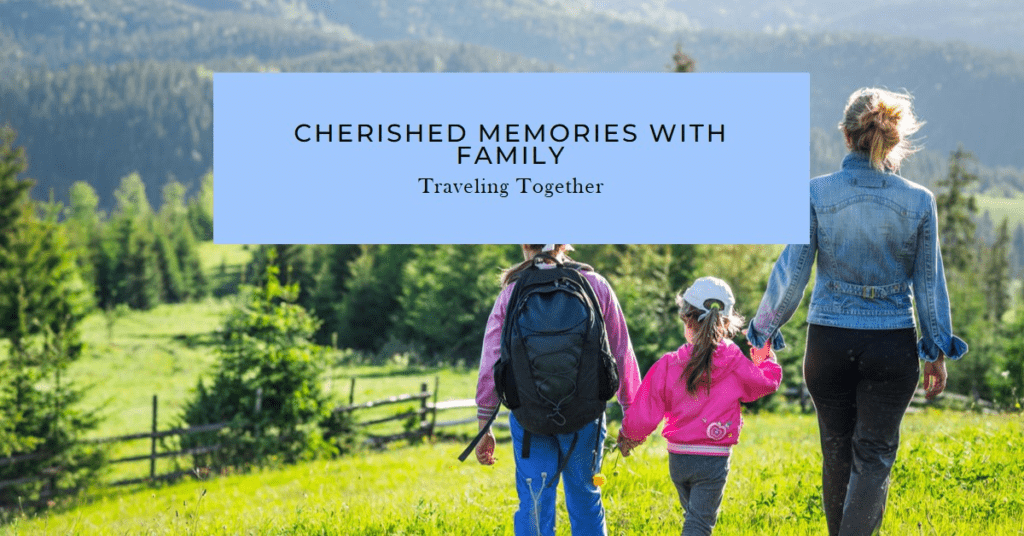
Preparation and Packing
Traveling with family requires careful preparation. Pack essentials for each family member, including medications, comfort items for children, and entertainment for long journeys.
- Medications: Bring necessary medications and a basic first aid kit.
- Comfort Items: Pack familiar items for children, like blankets or toys.
- Entertainment: Prepare activities for long trips, such as books, games, or tablets.
Activities for All Ages
Plan activities that cater to all ages and interests. Research destinations that offer a mix of cultural, educational, and recreational experiences.
- Cultural: Visit museums, historical sites, and cultural performances.
- Educational: Engage in activities like guided tours or science centers.
- Recreational: Enjoy nature parks, theme parks, or beach outings.
Harnessing the Power of Travel Apps and Resources

Essential Travel Apps
Leverage technology to enhance your travel experience. Apps like Google Maps, TripIt, and Airbnb can simplify navigation, itinerary planning, and accommodation booking.
- Google Maps: Navigate cities, find attractions, and discover local businesses.
- TripIt: Organize your travel plans and keep all your reservations in one place.
- Airbnb: Find unique accommodations and experiences.
Resourceful Websites
Websites like Skyscanner, Booking.com, and Lonely Planet offer valuable information on flights, accommodations, and travel tips.
- Skyscanner: Compare flight prices and find the best deals.
- Booking.com: Book hotels, apartments, and other accommodations.
- Lonely Planet: Access travel guides, tips, and recommendations.
Overcoming Language Barriers

Communicating Effectively
Language barriers can be challenging, but they shouldn’t stop you from exploring new places. Learn basic phrases in the local language to show respect and make communication easier.
- Basic Phrases: Learn greetings, thank you, and other common expressions.
- Translation Apps: Use apps like Google Translate for more complex conversations.
- Pocket Dictionary: Carry a small dictionary for quick reference.
Engaging with Locals
Non-verbal communication, such as gestures and body language, can also be helpful. Engage with locals by participating in language exchange programs, taking cultural classes, or joining local tours.
- Non-Verbal Communication: Use gestures and body language to aid understanding.
- Language Exchange Programs: Practice the local language with native speakers.
- Cultural Classes: Learn about local traditions and customs through classes or workshops.
Conclusion
Travel the world in 2024 is a life-changing experience that broadens your horizons and enriches your understanding of different cultures. By following our comprehensive guide, you can navigate the complexities of world travel with confidence and ease. From meticulous planning and packing to engaging with locals and practicing sustainable travel, every step of your journey can be an adventure in itself. Embrace the unknown, seek out new experiences, and let the world be your playground.



